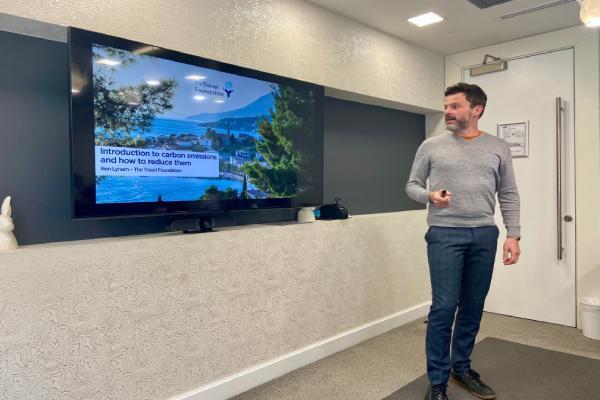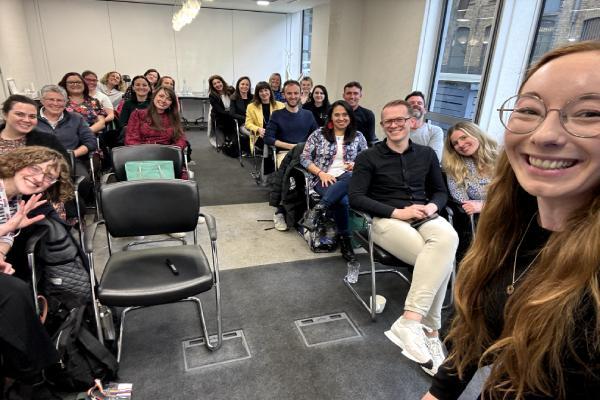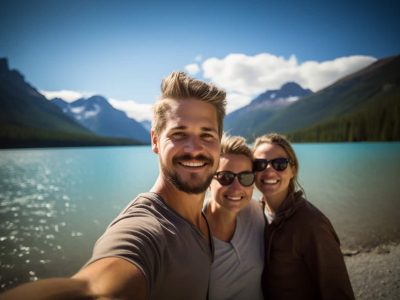07 Jun 2024by Jennifer Morris
“How can I sell cruise without a guilty conscience?” This and questions like it were top of the list for TTG Sustainable Travel Ambassadors in Training attending the first of five TTG Sustainable Travel Heroes 2024 workshops.
The Travel Foundation’s head of strategic communications, Ben Lynam (right), who hosted the workshop, says while tourism and emissions will continue to grow, agents can play a key part in helping to reduce them.
Lynam adds agents shouldn’t feel guilty about selling a cruise, for example, because “if a customer is set on a cruise and you don’t sell it to them, someone else will”.
“But do act on the things that are in your control,” he presses. “We all need to start making some changes at a scale and speed we’ve never seen before.”
Just start!
Lynam says business leaders often get “freaked out” by emissions terminology (such as scope 1, 2 and 3) and the apparent daunting scale of creating a climate action plan, but reassures travel agents having “a plan for a plan” is a good enough place to start.
“You could say ‘we will start to do some measurement and then have a think’ – that can be the plan for this year. [The plan] will change over time – and it won’t be perfect – and that’s also fine,” he says, adding: “Copy others like you that are doing this… we don’t want to compete.”
The scopes
Lynam urges agents “not to worry too much” about the term “scope 1, 2 and 3 emissions”. “It’s a categorisation – the planet doesn’t care about the terminology,” he says. “But it helps us to consider our energy use and what’s most important.”
In summary, scope 1 is direct emissions, such as travel to your business by car. Scope 2 is anything pulled from the national grid. Scope 3 is emissions from your supply chain; that is the product itself, such as flights and holidays.
“Selling thousands of holidays is basically where the impact is. So do tackle the direct impact you have (heating the office etc), but [scope 3] is the bit that really matters,” says Lynam.
He adds it’s important to consider a sector’s emissions compared with its size. For example, aviation accounts for 17% of all tourism emissions, but when a holiday involves flying, it will likely make up as much as two-thirds of the carbon footprint. And flights on the longest haul trips (2% of all trips) represent 19% of all travel and tourism emissions.
Some first steps
So what and who can you influence?
- People: you can start to write sustainability requirements into contracts, such as requiring staff to provide data to help you better understand and report on your scope 3 supplier carbon footprints.
- Product: is there anything you can change in your offering? Could you choose suppliers that you know are leading the way, or focus on building your short-haul and domestic portfolio? (Long-haul and cruise are the hardest areas to decarbonise).
- Client behavioural change: suggest longer holidays and closer to home.
- Your energy provider: switch company (Octopus Energy is recommended) or change your energy tariffs, which Lynam says is one of the easiest ways to really reduce emissions.
- Your banking and investment providers: consider their green credentials.
- Sign and use the Glasgow Declaration: collaborate on things like applying pressure to suppliers to offer a lower-emission version of their product.
Lynam concludes by pressing the need for collaboration. “You’re not alone, there are a whole load of people doing this,” he says. “And we’re trying to make sure this isn’t a competitive issue.
“Get your own house in order, but feel you can [also] be part of the influential tourism machine, and think about how you can change it.”
For more tips on selling sustainable travel, and information on the Ambassador programme, visit ttgmedia.com/sustainabletravelheroes
Good intentions
- AE Expeditions protects the planet via care for the climate and leaving a lighter footprint. It also focuses on people through education and enrichment, and collaborating for change.
- Iberostar’s 2030 agenda includes moving towards a circular economy, improving coastal health and focusing on the responsible consumption of seafood.
- Intrepid Travel provides sustainable, experience-rich travel via immersive itineraries, hosting small groups with local tour leaders.
- TTC Tour Brands “makes travel matter” via cultural preservation, sustainability, conservation and the protection of our world’s wildlife.
- The Greek National Tourism Organisation’s sustainablegreece.co.uk website highlights and promotes the country’s many sustainable initiatives, encouraging UK travellers to visit responsibly.













